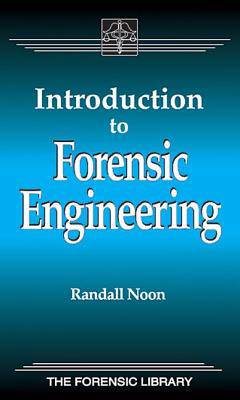
- Afhalen na 1 uur in een winkel met voorraad
- Gratis thuislevering in België vanaf € 30
- Ruim aanbod met 7 miljoen producten
- Afhalen na 1 uur in een winkel met voorraad
- Gratis thuislevering in België vanaf € 30
- Ruim aanbod met 7 miljoen producten
Zoeken
€ 465,95
+ 931 punten
Omschrijving
Introduction to Forensic Engineering introduces the science, methodology, and engineering principles involved in the diagnosis of some common types of accidents and failures, such as fires, explosions, automobile accidents, storm damage, industrial accidents, slips and falls, arson, water pipe damage and more. Each chapter stands alone and can be read without reference to the others. The chapters have been written so that non-technical professionals can easily digest the information and immediately apply it.
Specificaties
Betrokkenen
- Auteur(s):
- Uitgeverij:
Inhoud
- Aantal bladzijden:
- 220
- Taal:
- Engels
- Reeks:
Eigenschappen
- Productcode (EAN):
- 9780849381027
- Verschijningsdatum:
- 3/09/1992
- Uitvoering:
- Hardcover
- Formaat:
- Genaaid
- Afmetingen:
- 160 mm x 246 mm
- Gewicht:
- 712 g

Alleen bij Standaard Boekhandel
+ 931 punten op je klantenkaart van Standaard Boekhandel
Beoordelingen
We publiceren alleen reviews die voldoen aan de voorwaarden voor reviews. Bekijk onze voorwaarden voor reviews.








